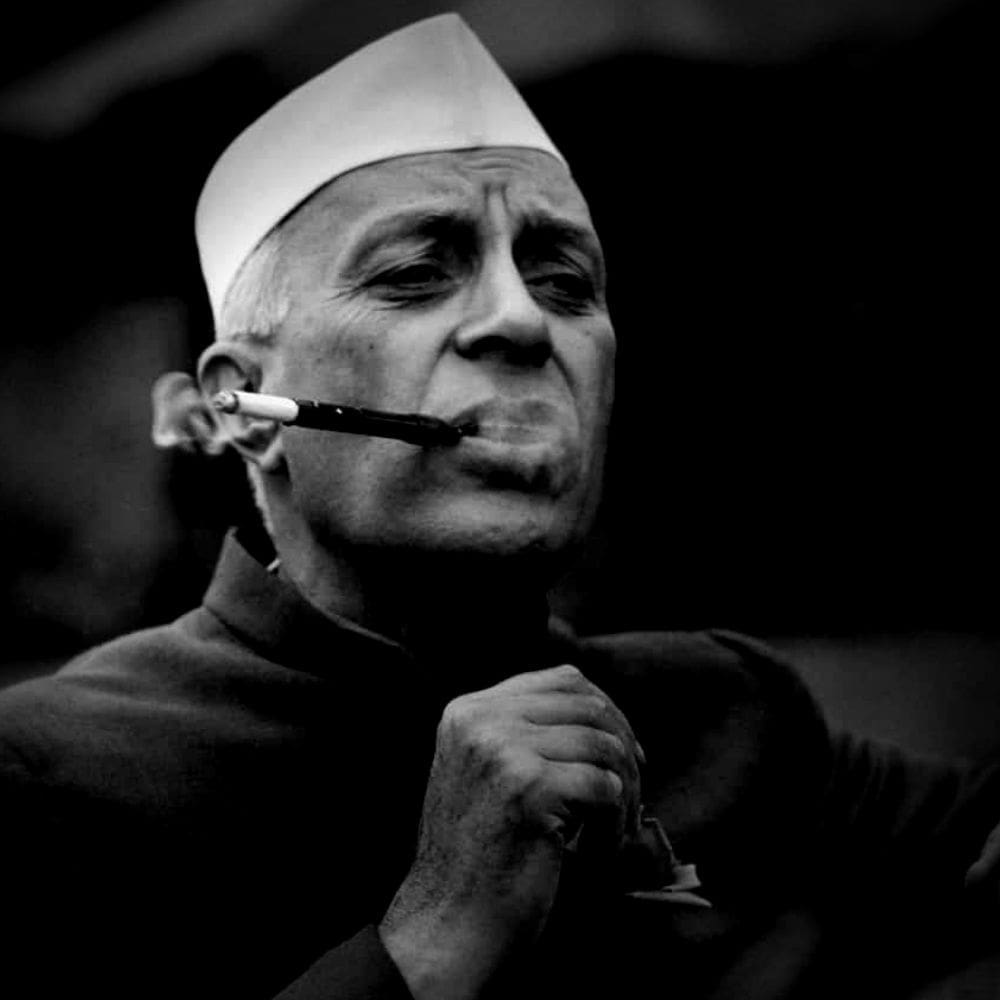WANTING MAHARAJA TO LICK HIS BOOTS
Most unwisely, while Nehru had treated Maharaja Hari Singh ignominiously, he gave all his support to Sheikh Abdullah, little realising that but for the Maharaja’s signature on the Instrument of Accession, J&K could not be a part of India.
When Abdullah launched the ‘abusive and mischievous’ Kashmir agitation against the Maharajah in May 1946 leading to his arrest (Blunder#27), Nehru decided to go to the Valley in June 1946 to free Abdullah. Though prohibited to enter the State, Nehru decided to defy the ban. He proclaimed that he wanted to take on the autocratic and the feudal rule that prevailed in Kashmir. Autocratic and feudal rule prevailed in the other 547 Princely States too that ultimately merged with India: Did Nehru go to any of those 547 states to similarly protest—especially the recalcitrant Nizam-ruled state of Hyderabad, where Hindus had been brutally at the receiving end of the Razakars? Nehru did not seem to realise that the support of the princes and their collaboration would be indispensable in the coming months for persuading them to accede to India. To take on the Maharaja at that stage, and that too as Congress president, was politically wise. Sardar Patel and others tried to dissuade him, yet he went. Sardar Patel wrote to DP Mishra:
“Though President [Nehru] has been elected for the fourth time, he often acts with childlike innocence, which puts us all in great difficulties quite unexpectedly. You have good reason to be angry but we must not allow our anger to get the better of ourselves… He has done many things recently which have caused us great embarrassment. His action in Kashmir, his interference in Sikh election to the Constituent Assembly, his Press conference immediately after the AICC are all acts of emotional insanity and it puts tremendous strain on us to set matters right…”
Most undiplomatically, even Gandhi, when he went for his only visit to Kashmir in 1947, pointedly rejected the hospitality of the Maharaja, and remained the guest of the National Conference of Abdullah. Rebuffed thus by Gandhi, having been consistently rubbed the wrong way by Nehru, and experiencing the hostility of Nehru towards him over the last many months, and watching the commitment being shown to his arch enemy, Abdullah, why Hari Singh, anybody in his place—Nehru himself, were he in Maharaja’s shoes—would have hesitated to accede to India. Hari Singh realised he would have no future with Nehru and Gandhi at the helm. Pakistan he surely did not wish to join. But he did not relish the insistence from Nehru (when Maharaja offered accession in September 1947) to first hand over power to Sheikh Abdullah—as if he were some foreign power who should hand over power to a native. So, the Maharaja started considering his option for independence, which was legally permissible.
If Nehru had dealt with Hari Singh wisely looking to the political options, like Sardar Patel had done in respect of all the other 547 Princely States, had Nehru not allowed his personal bias to dominate, had Nehru accommodated Maharaja suitably, had Nehru convinced him that his interests would be suitably protected if he joined India, Hari Singh may not have dithered and would have signed the Instrument of Accession well before 15 August 1947; and J&K would never have been an issue!
Apart from, “I thought he [Nehru] wanted to make the Maharaja lick his boots…” ; Mountbatten had made another observation: “I am glad to say that Nehru has not been put in charge of the new [Princely] States Department, which would have wrecked everything. Patel, who is essentially a realist and very sensible, is going to take it over…Even better news is that VP Menon is to be the Secretary.”
States V Shankar in his book, ‘My Reminiscences of Sardar Patel’: “Pandit Nehru regarded it as axiomatic that only Sheikh Abdullah could deliver the goods and was prepared to make any concessions to him to seek his support… Sardar did not trust Sheikh nor did he share Pandit Nehru’s assessment of his influence in the State. He felt that our case in Jammu and Kashmir had to be met on the basis of the Maharaja executing the Instrument of Accession, the thought of antagonising the one on whose signature on that document alone we could justify our legal case in Jammu and Kashmir was distressing to him… “Sardar also felt it would be in the long-term interests of India to utilise the Maharaja’s undoubted influence among the various sections of the people to force a permanent bond between the State and India…He [Sardar] was doubtful if the weakening of the administrative authority by the Maharaja to the extent demanded by the Sheikh was in the interests of the State and India. He felt that the last thing that should occur at that critical period was for the Maharaja and the Sheikh to work at cross- purposes with each other or for the already disillusioned people of the State to harbour doubts about the future of the Government or the Maharaja…
“Sardar Patel also came into conflict with Pt Nehru and Gopalaswami Ayyangar owing to the personal rift between the Maharaja and Sheikh Abdullah. It can scarcely be denied that the latter wanted the Maharaja’s head on a charger and taking advantage of the wrong assessment by Pandit Nehru and Gopalaswami Ayyangar … he literally wanted to dictate his own terms…”


